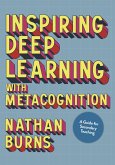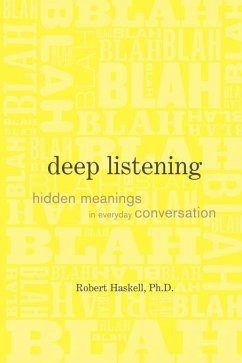NOT Only in the Deep South is Dr. Hines' attempt to validate the damaging practices she unknowingly engaged in early in her career and adamantly fought against later in her career while working in several different public school settings that are located above the Mason-Dixon line. Her heartfelt account is designed to serve as both a memoir and a primer that will present a clear call to action for those educators and school stakeholders who are committed to equitable student outcomes to satisfy not only their moral obligations but also to help extinguish generational poverty and blight that continues to plague many communities that lack not only privilege but also advocacy.
Dieser Download kann aus rechtlichen Gründen nur mit Rechnungsadresse in A, D ausgeliefert werden.









